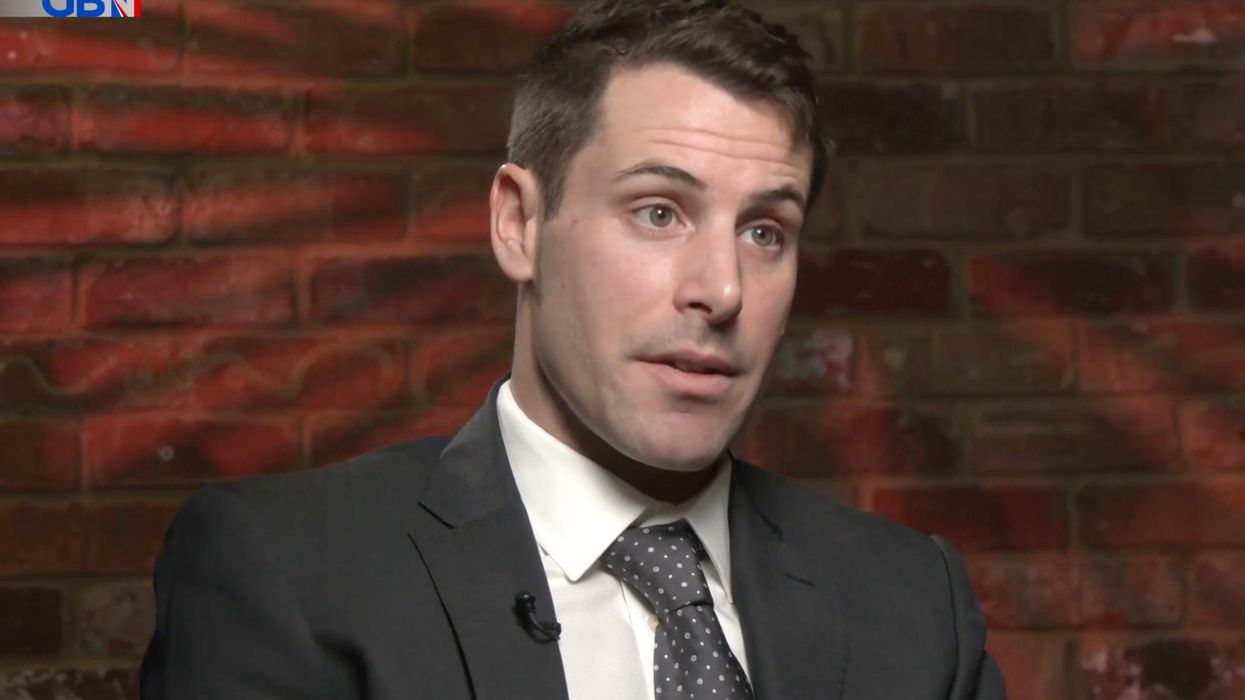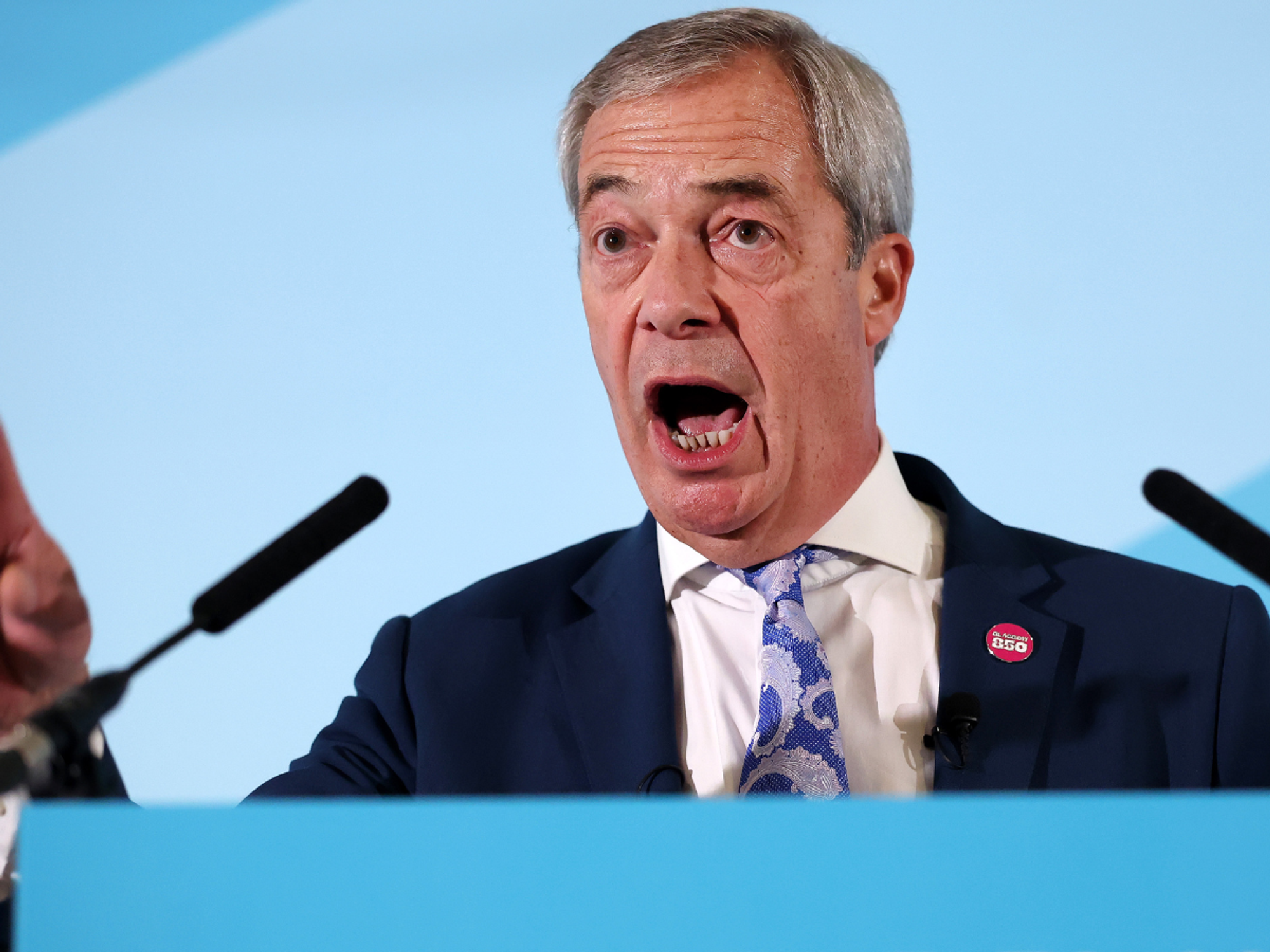Behind the Scott Benton sting that couldn’t fool GB News

Scott Benton was stung by the operation | gbnews

GB News Investigates reporter Charlie Peters looks back at the Scott Benton case
Don't Miss
Most Read
Corrupt and ‘for sale’. That’s how a Westminster committee has described disgraced MP Scott Benton, who faces a 35-day suspension after being busted offering to lobby ministers on behalf of the gambling industry.
The Blackpool South MP was stung by investigative journalists from the Times, who posed as representatives from a wealthy Indian family looking to invest in British business.
Tucked away in the corner of a swanky Westminster hotel, Benton was smitten by the offer of cash and a seat on the board of a fictitious company.
He promised ‘direct access to a government minister’ and said he could ‘call in favours’ with other MPs.
Benton’s ‘toxic’ behaviour risked tarnishing the reputation of all MPs, so said the standards committee in its report today, and it’s also given Rishi Sunak another by-election headache, as Benton could face recall from his constituency over the suspension.
Benton’s actions were not just toxic, they were deeply stupid. And I should know, I saw right through the trap laid before him, because the same investigative reporters set the same surprise for GB News’s very own Philip Davies.
Producing and presenting investigations is one of my favourite responsibilities at Britain’s news channel because our immense audience send in tips that other broadcasters miss out on.
But it’s not every day that one of our presenters emails me with a tip-off.
In March, our man in Shipley got in touch to say that he thought he was being targeted by some stingers. The mysterious “William Kent” from Tahr Partners had reached out offering the same deal that Benton’s hungry eyes gorged over.
A couple of days of work a month, a position on the board of a portfolio company, and, of course, a generous ‘compensation package’ to seal the deal.
Davies, with his professional background in the gambling industry, was an obvious target. But the right honourable parliamentarian wrote back to say that while he was happy to meet them, Tahr Partners might as well not bother, because he would not accept their offer that breached the rules of the Commons.
Our straight-talking Yorkshireman smelled something fishy and wanted GB News Investigates on the case.
Becoming a counter-intelligence and security professional in support of distressed presenters was not what I expected after I joined the people’s channel, but our snooping machine swiftly whirred into action.
It quickly became obvious that this approach could only be a sting.
Despite claiming to have £340 million of assets in India, the company Tahr Partners did not exist.
And its representative “William Tell” had zero connections on Linkedin. Using a wayback machine, I found out that the profile hadn’t even existed until a month before the advance.
Hunting for more answers, I visited their supposed Mayfair offices, posing as a deliveryman. Workers at the building said they’d never heard of the British-Indian consortium.
In a final move to prove the background of this business, I phoned up on a public payphone. In a classic move for a fake company, it sent me to an overflow company, which takes calls on behalf of businesses without an office or dedicated phone line.
After stringing along the overflow company phone rep, they eventually admitted that they’d only started taking calls for Tahr Partners that week.
To say that it didn’t add up was true as a grave understatement.
My first assessment was that Davies was being targeted by a left-wing group, hunted down for his associations with GB News and the right of the Tory Party.
Hoping to sting the stingers, we agreed to a meeting, and set up some covert filming and recording plans.
And so, a week later, Philip Davies found himself hiding in an alley in Westminster while I helped him put on a tie with a hidden camera lodged inside.
Briefed up and ready to head into action, Shipley’s answer to Jason Bourne marched nonchalantly into what he knew was a trap.
Their set-up was weak, but in person, the stingers were damn good. So good, in fact, that Davies and I started to doubt our old assessment.
Could this company actually be real? Were they just enormously incompetent with setting up offices and phones? Had they just failed to get anything registered on Companies House due to laziness?
Sat nearby sipping on a coffee and carefully observing the conversation, I spied on as Davies repeatedly rejected the chance to support the company with lobbying.
When the meeting ended, the first cracks in their disguise appeared. Despite failing to snag the MP’s support, both of his inquisitors were smiling and in happy spirits after he left. I stayed for a while, where they discussed how the meeting went. It didn’t make sense, and suddenly the confidence in our old assessment returned.
A few weeks later we found out who they really were: investigative journalists from The Times newspaper.
I give them full marks for a fabulous scoop. It was a delicate and direct ploy to catch out the tempting urges of greed that can corrupt an MP.
But it wasn’t good enough to fool Davies, armed with GB News’s nascent investigative wing.
They might’ve tripped up the bumbling Benton, but they couldn’t sting the stingers.










